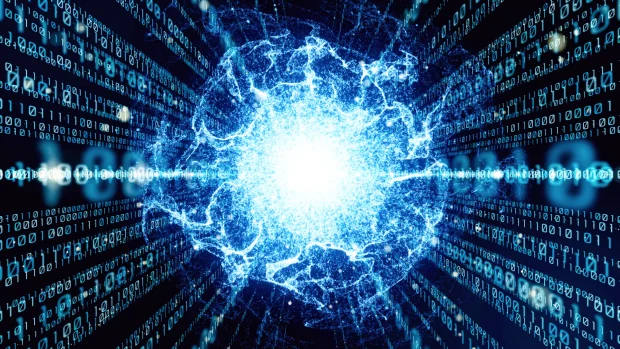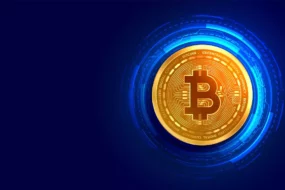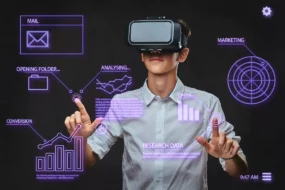- Home
- Technology
- Tech & Innovations
- Quantum Computing Explained: U ...

Every time a science fiction movie tries to delve into complexities, it dives into quantum mechanics. But is it as complex as they make it sound? Well, it doesn’t have to be. In this blog, we will walk you through the concepts of quantum computing.
Quantum computing is a rapidly emerging technology that uses the laws of quantum mechanics as its base. Quantum mechanics is the science that governs the behavior of matter and energy at the atomic and subatomic levels. It solves complex problems that are too tough for classical computers.
Wondering how it came to be?
The origins of quantum computing research date back to the 1980s. It started with physicist Richard Feynman’s proposal of quantum mechanical phenomena like superposition to be harnessed for computation.
Although still in development, it promises game-changing potential. Let us unveil the vast range by closely examining the fundamentals.
What is Quantum Computing?

Quantum computing explained simply includes a multidisciplinary world where physics, mathematics, and computer science play a major role. Compared to classical computers, it uses quantum physics to tackle complicated problems more quickly.
The hardware and research application development allows the computers to take the help of quantum effects like superposition. Normally, classical computers use ‘Bits’ and information units in 1s or 0s. It is different for quantum computers, as they use ‘Qubits’ as information units. Qubits can exist as 1s, 0s, or in both states simultaneously in the phenomenon of superposition.
The superposition of qubits enables massive parallelism. This allows quantum computers to process some tasks exponentially faster than classical computers. Despite their limitations, the principles show potential for medical advances, artificial intelligence, and many more.
Principles of Quantum Computing
Quantum computing works on some quantum principles, such as:
1. Superposition
Quantum objects like qubits can exist in multiple states at once due to the phenomenon of superposition. For instance, a qubit can simultaneously represent 0 and 1.
Also, their ability to encode more states in a single qubit allows quantum computers to store more information than classical bits.
2. Entanglement
Entanglement occurs when qubits become correlated with each other in a non-classical way. Even when separated by large distances, the properties of entangled particles remain linked. This enables quantum parallelism, allowing quantum computers to evaluate multiple solutions concurrently during computation.
3. Decoherence
In the principle of decoherence, quantum properties like superposition and entanglement are lost when qubits interact externally. This leads to errors in computation, and quantum systems include error correction methods to maintain coherence.
Right now, a great deal of time and money is devoted to the field of quantum computing for error correction. But, IBM quantum computer is leading the world in quantum computing hardware and software with little error.
4. Interference
Quantum interference amplifies or cancels out probabilities that occur when quantum states interact. Constructive interference enhances certain outcomes, while destructive interference suppresses others. Quantum algorithms leverage this to influence computation results favorably.
Quantum Algorithms and Applications
Some quantum algorithms and applications are mentioned below:
Grover’s Algorithm for Search
Grover’s algorithm enables searching of unstructured databases much faster than classical methods by achieving quadratic speedup for this problem. It allows finding a desired element in an unsorted list of N elements with just O(sqrt(N)) operations instead of the O(N) operations required classically.
This could have major implications for web search and artificial intelligence problems relying on searching large data.
Shor’s Algorithm for Factorization
Shor’s algorithm allows integer factorization rapidly compared to classical algorithms by achieving exponential speedup. It factors large numbers in polynomial time, where best classical factoring algorithms require sub-exponential time.
This speedup could be used to break current encryption schemes like RSA that rely on the difficulty of factoring large prime numbers.
Simulation of Quantum Systems
Simulation of quantum systems is expected to be one of the most useful applications of quantum computing. Conventional computers struggle to simulate the behavior of quantum particles, even for small systems, due to the exponential growth of variables.
Quantum computers could seamlessly simulate much larger quantum systems and interactions. This enables breakthrough physics, chemistry, and material science research by studying atomic and subatomic phenomena.
Challenges in Building Quantum Computers
Some challenges faced by scientists while building quantum computers are:
- Qubit Decoherence: Qubits lose their quantum properties through interference, and decay leads to several errors.
- Error Correction: Counteracting decoherence with error-correcting methods adds to the complexities.
- Qubit Interactions: Unwanted qubit interactions can create noise and reduce computational accuracy.
- Scaling Systems: Expanding to large numbers of qubits while controlling errors and interactions poses difficulties.
- Hardware Design: Maintaining the fragile state of qubits during computation requires complex hardware like cryogenics.
- Software and Algorithms: Efficient software and algorithms optimized for quantum systems are still under development.
Bottom Line
The theoretical idea of quantum computing is quickly becoming an actual reality. Though the only quantum computers available today are proof-of-concept devices, the subject is developing quickly.
When these ideas were researched theoretically decades ago, nobody could fathom why quantum computer are used. But today, the transformations that quantum computing promises to numerous industries are unthinkable.
The future is unknown, but if the successes of quantum computing to date are any indicator, we are probably on the verge of a computing revolution that will make it possible to find answers to previously unimaginable problems.







